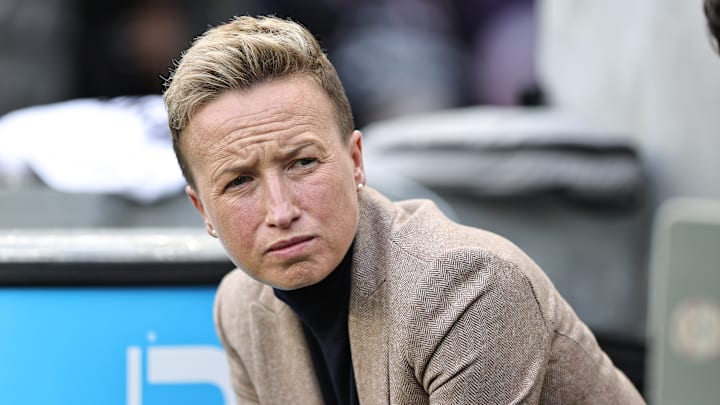The scandal of a drone spying on Canada's Women's Soccer team at the 2024 Paris Olympics exposed what was until now thought to be well concealed within the sporting fraternity. Independent investigations brought forward this case, which has increased the worry about ethics and transparency in management in Canada Soccer. Its fallout is already in progress-suspensions, staff departures, and most visibly, a massive reputational hit to Canadian women's soccer.
Follow Playing for 90 on X (Twitter).
Spying and Mistrust in Canada Soccer Details emerging on the usage of drones are disturbing, to say the least. Investigators Mathews, Dinsdale & Clark, in a review obtained by CBC, revealed that, ahead of the Paris Olympics, suspicion had it that drones were used by Canada's women's soccer coaches to film opponents' training sessions. The practice, carried out for a number of years by at least one coach, reportedly had the knowledge of Canada's coaching team, which included head coach Bev Priestman, assistant Jasmine Mander, and analyst Joey Lombardi, where at least two of the coaches signed off on or tolerated the surveillance.
It is a shock for the public and the media to realize that this was not an isolated incident. According to the report, even though it did not happen at the Tokyo Olympics in 2021, this improper surveillance was instigated by the coaching staff at previous events. It points to a culture of tolerance toward unethical practices-a line between acceptable tactics and espionage that, in Canada's case, was clearly crossed.
Suspensions and Disciplinary Actions: Where Change is Afoot at Canada Soccer
In its verdict, FIFA handed one-year suspensions against all three parties concerned: Bev Priestman, Jasmine Mander, and Joey Lombardi. Canada Soccer has determined none of these will have their previous roles returned. Lombardi, who had resigned, and Priestman and Mander, who had been waiting for the final decision of the federation, had assured that would be so. In the result, this suspension brings a complete close to the tenure of Priestman as head coach and mars the career of the coach who guided Canada to Olympic gold in Tokyo.
The scandal also has implications for former head coach John Herdman, who, according to the report, may have been responsible for initiating the use of the drone. Now in charge at Toronto FC, Herdman has not testified yet, but Canada Soccer did launch disciplinary action that could see him banned from Canadian soccer. If charged, it would be a serious blow to his coaching career in Canada.
To that effect, Canada Soccer has announced several steps to ensure such an incident will not happen again, including?
Mandatory Reporting of Unethical Behavior: Henceforth, contractually obliged reporting of unethical behavior will be mandatory, supported by new confidential reporting software. In that respect, team members are in a position to feel safe from retaliation when reporting acts of misconduct.
Ethics and Governance Training: Coaches and staff would be taken through ethics training and annual certification in the Code of Conduct and Ethics. Also, specific management training will be provided to the managers working directly with the teams to entrench ethical standards and enhance the quality of oversight.
Audit and Compliance Committee: So far, Canada Soccer has moved to establish an independent Audit and Compliance Committee for better governance. This would be a new entity that would take the responsibility of the compliance issue regarding observing ethical standards and report directly to the board for more transparency.
Kevin Blue emphasized that such changes are just the initial steps in the cultural shift that Canada Soccer would go through. In his words, "the findings of the investigation fortify our commitment to taking the required changes in the federation for the better.";
A Silence and Compliancy Culture in the National Team
The report also speaks to a disturbing culture of silence inside Canada's national team. Many on the coaching staff said they felt uneasy around the surveillance but claimed they did not feel in a position to question their superiors' judgment. Such an environment nurtures a divisive hierarchy, where team members are compelled to put up with practices that are unethical, even though it goes against their personal values and sense of fair play.
This is a climate of fear and compliance that has demonstrated managerial failure in regard to the well-being of its staff and a lack of ethical standards. Due to this silent compliance, Canada Soccer lost control over the internal environment, hence urgent changes in culture such as a safe reporting system are essential, ethics training for all persons involved within the federation.
Consequences for Canadian Women's Soccer Image
That has not only destabilized the women's team of Canada but also brought a scar to Canadian women's soccer in its entirety. Though changes announced are a step in the right direction, it is in the implementation and continuity of these changes that the real test will be proven for the federation. Canada Soccer promises internal transformation, but only time can tell if the promise indeed translates into lasting and real change.
This is the time for redefinition, a moment when integrity and respect in all acts should be at the core for women's soccer in Canada. If the commitment by the federation is valued, the scandal of the drone could mark a turning point-a signal that Canadian soccer is ready to make the changes needed toward a more ethical and transparent future.
